While relationships between teachers and students seemed to be largely limited to interactions during classes or on school premises, social media has increased the availability of teachers and the avenues of communication for students to reach them. When parents become concerned about the frequency of their children’s online conversations with teachers or the content of them, educators can find themselves being investigated or facing discipline for alleged misconduct.
States typically prosecute adult offenders who have allegedly had sexual relationships with minors under their statutory rape laws, but Texas also enacted an improper relationship statute in 2003 that made it a felony offense for school employees to engage in sexual contact with any of that school’s students. In 2011, the law was amended to include students who attended any school in the employee’s district, but the statute still applies to all students—even those who are 18 years of age or older.

In the Information Age, minors have far more access to teachers through electronic communication and various social media platforms. All too often, concerned parents or possibly even other students can misinterpret online communications between educators and students, leading to possible complaints and investigations into allegedly improper relationships when there was no actual misconduct.
The Austin American-Statesman requested the names of teachers from the Texas Education Agency (TEA) who surrendered their teaching licenses or whose licenses were revoked after being investigated by the TEA for engaging in an improper relationship with a student. The newspaper then analyzed thousands of records included in government databases and media reports to determine the names of teachers who were charged and ran criminal background checks on those teachers through the Texas Department of Public Safety. You can use this website to search for teachers by name or by district.
Texas Monthly magazine published an article on February 4, 2015, examining illegal teacher-student sexual incidents. The article notes some of the issues with the improper relationship law because of its “potential for overreach.” The article notes that at the time of publication, Texas Tribune data showed more people were imprisoned for improper relationship charges than the number of people incarcerated for criminally negligent homicide, disarming a police officer, or injury to the elderly.
Plano, Allen, Frisco, and McKinney, TX Improper Relationship Between Educator and Student Lawyer
If you were arrested for the improper relationship between educator and student in Plano, Allen, Frisco, McKinney, or a surrounding area of Collin County, you cannot afford to wait to get yourself legal help. Make sure that you have a criminal defense attorney protecting your rights.
The Law Offices of Richard C. McConathy can aggressively defend you against these kinds of charges and help you clear your name. We will be able to sit down with you and discuss everything about your case when you call (469) 304-3422 or contact us online to take advantage of a free consultation.
Improper Relationship Between Educator and Student Charges in Collin County
It’s important to know the laws governing improper relationships apply to all public and private school employees. This includes office administrators, librarians, coaches, and principals.
Improper relationship between a student and educator is charged under the same section of the Texas Penal Code as indecency with a child. According to Texas Penal Code § 21.12, it is against the law for an educator to engage in any sexual activity with a student enrolled at the school where they work.
Texas Penal Code § 21.12(a) makes it a second-degree felony punishable by up to 20 years in prison and/or a fine of up to $10,000 for an employee of a public or private primary or secondary school to:
- Engage in sexual contact, sexual intercourse, or deviate sexual intercourse with a person who is enrolled in a public or private primary or secondary school at which the employee works;
- Hold a certificate or permit issued by the State Board for Educator Certification or be required to be licensed by a state agency under the Texas Education Code and engage in sexual contact, sexual intercourse, or deviate sexual intercourse with a person the employee knows is enrolled in a public primary or secondary school in the same school district as the school at which the employee works, or a student participant in an educational activity that is sponsored by a school district or a public or private primary or secondary school, if students enrolled in a public or private primary or secondary school are the primary participants in the activity and the employee provides education services to those participants; or
- Engage in the online solicitation of a minor with a person the employee knows is a person enrolled in a public primary or secondary school in the same school district as the school at which the employee works, or a student participant in an educational activity that is sponsored by a school district or a public or private primary or secondary school, if students enrolled in a public or private primary or secondary school are the primary participants in the activity and the employee provides education services to those participants.
Texas Penal Code § 21.02 provides the following definitions relating to this statute:
- Deviate Sexual Intercourse — Any contact between any part of the genitals of one person and the mouth or anus of another person, or the penetration of the genitals or the anus of another person with an object.
- Sexual Contact — Any touching of the anus, breast, or any part of the genitals of another person with the intent to arouse or gratify the sexual desire of any person.
- Sexual Intercourse — Any penetration of the female sex organ by the male sex organ.
Improper Relationship Between Educator and Student Penalties in Texas
According to the Penal Code, an improper relationship between educator and student is a second-degree felony punishable by two to 20 years in prison and a fine of up to $10,000. On top of this, the State Board for Education Certification (SBEC) will take disciplinary actions as well.
The SBEC may take the following disciplinary action:
- Revoke or cancel a license
- Issue and inscribed or non-inscribed reprimand
- Suspended a license for a set time
- Restrict the renewal, holding or issuance of a certificate
- Any additional restricts deemed necessary by the SBEC
You may be required to register as a sex offender if the student was a minor. As a registered sex offender you will automatically lose your teaching license. You will also be restricted on where you live, work, and who you communicate with.
Even if you aren’t required to register as a sex offender, a felony conviction will still be on your criminal record. As a convicted felon, you will lose various fundamental rights and have a difficult time finding employment and housing.
Improper Relationship Between Educator and Student Defenses in Collin County
Under Texas Penal Code § 21.12(b-1), alleged offenders can present certain affirmative defenses when prosecuted for the improper relationship between educator and student. An affirmative defense allows an alleged offender to admit to otherwise-prohibited conduct without being criminally liable if he or she:
- Was the spouse of the enrolled student at the time of the alleged offense; or
- Was not more than three years older than the enrolled student and, at the time of the offense, the alleged offender and the enrolled student were in a relationship that began before the alleged offender was hired by the public or private primary or secondary school.
Some cases involve accusations that are exaggerated or simply false. A criminal defense lawyer can always looks for inconsistencies in an alleged victim’s statements or other flaws that can result in criminal charges being minimized or eliminated.
Improper Relationship Between Educator and Student Resources in Collin County
The Texas Education Agency (TEA) — TEA is the state agency that oversees primary and secondary public education. On this website, you can find information about the State Board for Educator Certification (SBEC), which is responsible for disciplining educators for misconduct. You can also find answers to frequently asked questions about educator discipline and superintendent reporting of educator misconduct.
Collins v. State, (App. 11 Dist. 2015) 479 S.W.3d 533 — April Collins was charged by indictment with four counts of improper relationship between educator and student, but the Eleventh Court of Appeals dismissed three of those counts in November 2015 after the court, following the rationale of the Court of Criminal Appeals in See Ex parte Lo, 424 S.W.3d 10, 14 (Tex.Crim.App.2013), held that Texas Penal Code § 21.12(a)(3) is unconstitutionally broad insofar as it incorporates the unconstitutionally broad Texas Penal Code § 33.021(b) relating to online solicitation of a minor. The Court wrote, “A statute is impermissibly overbroad if, in addition to proscribing activities that may be constitutionally prohibited, its sweeping coverage also proscribes speech or conduct that is protected by the First Amendment. Bynum v. State, 767 S.W.2d 769, 772 (Tex.Crim.App.1989).”
Find A Collin County Attorney for an Improper Relationship Between Educator and Student Attorney | Law Offices of Richard C. McConathy
Were you or your loved one arrested for the improper relationship between educator and student in Plano, Allen, Frisco, McKinney, or a surrounding area of Collin County? You need to act quickly to help protect yourself from many different consequences.
The Law Offices of Richard C. McConathy understands the serious nature of these kinds of charges and works hard to help people overcome these situations. You can have us get to work for you as soon as you call (469) 304-3422 or contact us online to set up a free consultation.,


